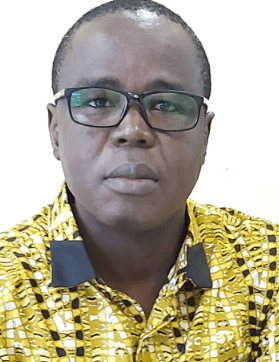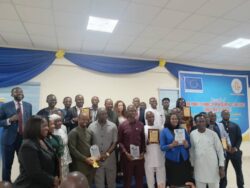By Amos SAFO
Like or hate it, the free senior secondary policy together with the science, technology, engineering, and mathematics (STEM) and technical and vocational education and training (TVET) will be the determinant of the 2024 presidential elections, as it did in 2020.
Over the past two weeks, I watched two videos by the Minister of Education, Dr. Yaw Osei Adutwum on social media, in which he elaborated the massive transformation his government has made in education.
The Minister’s comments came on the heels of a recent report by Business Insider Africa which ranked the top ten African countries with the highest quality of education. Business Insider Africa is a leading pan-African innovative business news provider targeting aspirational business leaders.
It features the latest innovation, technology, and business news from Africa. It runs all the global Business Insider content alongside Africa-focused interviews, data, and more.
The report ranked Ghana in the second place with 84.5 scores behind Tunisia which topped with 93.1. This means that Ghana is making steady progress in attaining Sustainable Development Goal 4 (SDG4) which aims to “ensure inclusive and equitable quality education and promote lifelong learning opportunities for all.
Prior to this report, some opposition politicians had taken turns to discredit the free SHS policy to the point of claiming that the government had connived with the West Africa Examination Council (WAEC) to leak questions to the final year candidates, which accounted for the high passage rate over the last eight years. This stance is the most unpatriotic act of undermining a very critical section of country. Below is the complete list of the ten countries.
| Rank | Country | SDG4 index scores |
| 1. | Tunisia | 93.1 |
| 2. | Ghana | 84.5 |
| 3. | Namibia | 83.7 |
| 4. | Mauritius | 83.5 |
| 5. | Togo | 80.1 |
| 6. | Cape Verde | 79.2 |
| 7. | Morocco | 78.6 |
| 8. | South Africa | 76.6 |
| 9. | Eswatini | 74.2 |
| 10. | Kenya | 71.1 |
In responding to the report, Dr. Adutwum said he was not surprised about the impressive performance of Ghana’s educational system. “We will get to the top soon”, he said in an interview with Paul Adom Okyere on “Good evening, Ghana”, which was also shared on social media.
According to Dr. Adutwum the transformation in STEM and TVET over the last few years is phenomenal. He cited the Biriwa Vocational Institute and the Accra Technology Institute as some of the best TVET schools in Ghana. The Anyinam TVET school was also recently built by the Italians and sponsored by the government.
Another state-of-the-art school named the Global Studies academy at Weija in the Greater Accra Region is ready to take off, according to the minister. He said the academy and has STEM infused courses and will offer additional courses on global trade, international relations, history, geography and economics to prepare students to play leading roles on the international scene.
No doubt, this blend of traditional courses and STEM could be a spring board to Ghana’s future economic transformation.
Special interventions
The Minister of Education stated that the government has identified gaps in the educational system and has developed plans to close the gaps by providing special interventions, including writing skills to help students to close the learning gap in some critical subjects.
This will make it possible for students who did not study science to study one-year intensive course in engineering and technology. For instance, this will enable students who studied visual arts to study engineering, networking and related courses.
The agenda is to invest in an educational system that thrives on innovation and technology. “This does not mean we are lowering standards; however, we need to break the barriers to enable Ghanaian youth to aim higher”, he emphasized.
Dr. Adutwum further underscored the fact that Ghana has every potential to become an industrialised and technology-driven economy. He noted at this point Ghana needs visionary leadership to steer it towards industrial transformation. “We need visionary leadership to transform Ghana’s educational system”, he emphasized.
Infrastructure
Personally, I think the current government needs to be applauded for the huge investments it has made in educational infrastructure. These include the Awaso SHS in the Western-North Region.
The Awaso SHS has 12 science labs for experiments in biology, chemistry and physics. The other well equipped TVET and STEM schools are the Afia Kobbi Ampem SHS, in the Ashatin Region, Agbomosu in the Eastern Region, and Kpasenkpe STEM school in the North-East Region to mention a few.
Dr. Adutuwm disclosed that existing schools like Fijai, Mfantsipim, Jinijini SHS are also being equipped to provide STEM and TVET education. Practically, Afia Kobbi Ampem Girls SHS has earned an enviable reputation for manufacturing and flying drones. It is perhaps, the only school in West Africa that has a tarmac for flying drones. He disclosed that 13 other SHS are being equipped to offer courses in aviation and aerospace next year.
Furthermore, the Minister stated that Huawei, a Chinese technology company, in collaboration with CISCO is finalizing plans to set up in Ghana to train the next generation of information technology certification courses. Henceforth, students in JHS and SHS will start IT courses before they enter tertiary schools.
This he said falls in line with the government’s manifesto promise to create one million IT-related jobs for the youth. I support the view of the Minister that in view of the massive transformation of SHS, TVET and STEM, we do not have to reset the current gains; we do not have to disrupt the current advancement in our education.
Ghana and Thailand
In the late1950s Ghana and Thailand charted similar economic paths as producers and exporters of raw materials. In the intervening years Ghana invested more in education than Thailand and had more years of education than Thailand. Initially, Ghana had advantage over Thailand because Ghana used and still uses English as the official language.
According to some economic experts, in the 1960s Ghana diversified into the exportation of other commodities, with gold as the leading commodity. Comparatively, Thailand revamped its educational sector with the introduction of STEM and TVET. It started adding value to its exports, especially electrical goods, machine parts and garments.
This led to a huge differentials in income between the two countries. While Ghana earned little foreign exchange from raw materials, Thailand had increased foreign exchange from exporting value-added finished products. Consequently, Thailand started recording a higher GDP than Ghana.
Statistics
Statistics indicate that Thailand’s GDP averaged $153.56 billion from 1960 to 2022. In 2023, Thailand’s GDP per capita was $7,336, which is 51% of the world’s average. On the contrary, GDP in Ghana averaged 17.74 USD billion from 1960 until 2023, reaching an all-time high of 79.52 USD billion in 2021 and a record low of 1.22 USD billion in 1960.
Today, Thailand’s economic growth is five times more than Ghana’s economic growth. The difference in economic performance is the type of education and skills training both countries pursued at different stages. While Ghana stuck to the old colonial grammar and literature education, Thaialnd invested in STEM and TVET education.
Colonial education
No doubt, our colonial based education which western countries imposed on Africa disconnected the continent from her indigenous local systems. The colonial system was designed to make Africa dependent on western knowledge and approval systems. The language, art and societal norms the west imposed on Africa naturally dismantled African traditions., and everything African was suppressed and stigmatized as primitive.
Historically, Africa became economically dependent on western economies. Invariably African economies were designed to serve western interests, such as producing and exporting raw materials, instead of producing and adding value to its raw materials. This economic manipulation made Africa to overly depend on western technology and lifestyles, ensuring that true independence remains a mirage.
The result is mental slavery which conditioned Africans to see themselves and their traditional knowledge systems as inferior. Thus, many Africans, old and young aspire to become more westernized and to be assessed by western standards.
Cultural erasure
Moving forward, African neede to reclaim her narratives, and this can only be done by decolonizing and dewesternising our current educational systems. Like Thailand, India and China, Ghana must make STEM and TVET education the cornerstone of economic transformation.
For this reason, Ghanaians must not allow any interest or pressure groups to disrupt the current educational gains. We cannot reset our current education. Long live Ghana, long live free SHS, STEM and TVET.










